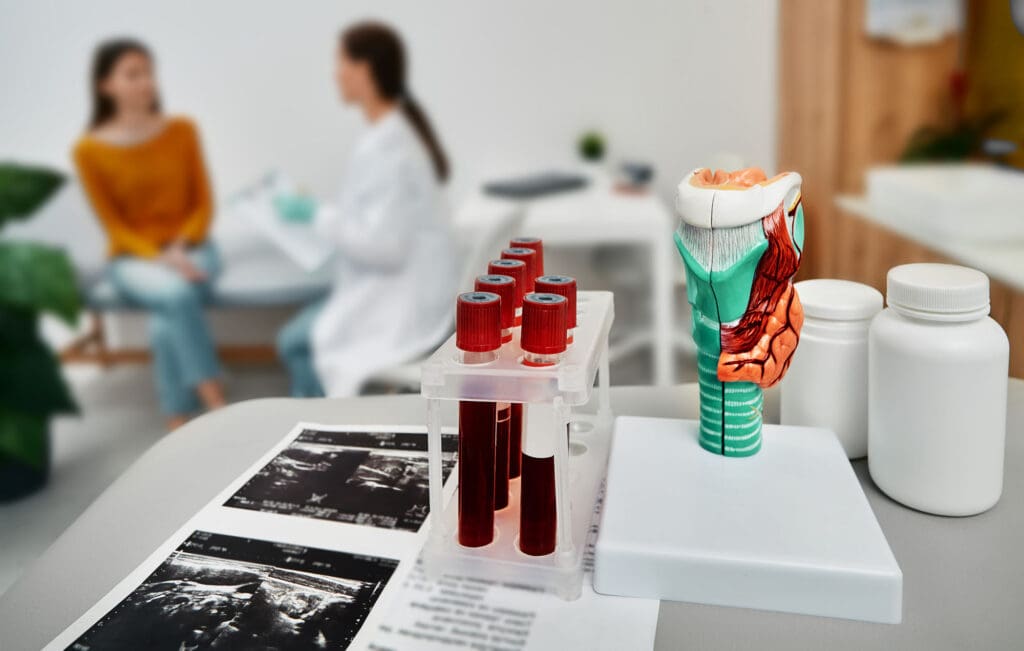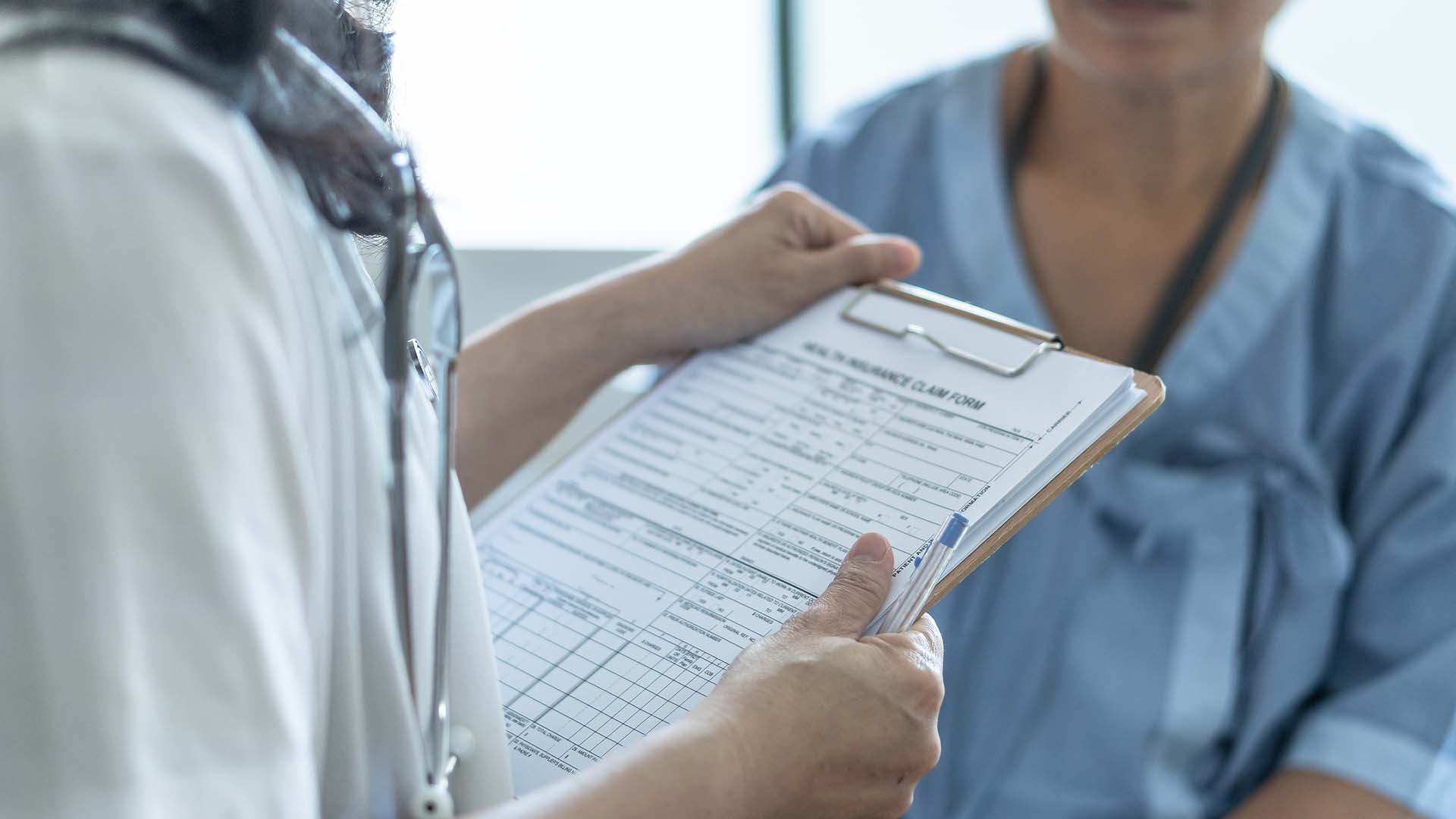Summary: A thyroid ultrasound is a non-invasive, radiation-free exam used to diagnose or monitor thyroid issues. Here are the three most common reasons for the procedure:
- To evaluate a palpable lump in the neck (thyroid nodule).
- To assess abnormal blood test results.
- To monitor existing thyroid nodules over time.
Diagnostic ultrasound is one of the most common types of painless, non-invasive medical imaging in the United States. It’s a quick exam that’s often an effective first step in diagnosing and treating many medical concerns. Unlike X-rays and CT scans, which use radiation, ultrasound is completely radiation-free.
Has your doctor ordered a thyroid ultrasound exam? Though it’s safe, common, and painless, it’s normal to feel nervous before a new medical exam.
A thyroid ultrasound uses sound waves to create a sonogram or an image of your thyroid gland. There are many reasons why your physician might have ordered this test. In this blog, we’ll share these reasons to help you prepare for your upcoming test.
1. To Evaluate a Palpable Lump in the Neck
Thyroid nodules, or lumps in the thyroid, are so common that physicians estimate that half of all human beings have one. However, these nodules, or fluid and tissue-filled growths, can often be small. They are often as tiny as one centimeter in diameter!
At that size, they rarely cause pain, symptoms, or aesthetic problems. Over 95% of these nodules are benign, meaning they do not indicate cancer.
A palpable nodule is a nodule that you can feel with your hands. The larger and harder the nodule, the more likely it is to cause symptoms. These can include pain, voice changes, or problems swallowing. Some large nodules can be visible, which might pose an aesthetic concern for patients, even if they are otherwise symptom-free.
Your doctor might order a thyroid nodule ultrasound to evaluate a palpable thyroid nodule or other lump. This is a smart preventative practice. It will ensure your doctor has baseline images if your lump grows or changes. If your doctor notices anything unusual during the scan, they can order further testing efficiently.
2. To Assess Abnormal Blood Test Results
Sometimes, your doctor might notice unusual hormone levels in your blood work. Since your thyroid is responsible for regulating hormones, this can be the first sign of a thyroid problem.
A doctor cannot see whether your thyroid is over or underactive on a thyroid gland ultrasound. However, they can use the exam to screen for other problems. For example, some structural issues can cause a fluctuation in hormone levels.
Your blood work might also indicate a potential malignancy. In such cases, your doctor will use an ultrasound of the thyroid to locate nodules. The test can help them determine whether your nodule is solid or fluid-filled. Since solid nodules have a higher chance of malignancy, that can help your doctor determine the next steps.
However, a thyroid ultrasound can also help rule out a serious diagnosis. Even if blood work is unusual, your doctor may not find a nodule at all. This discovery can help determine that other testing is needed and bring you closer to finding an answer.

3. To Monitor Existing Thyroid Nodules
If you have a known thyroid nodule, your doctor can use ultrasound imaging to monitor its size over time. Ideally, your nodule will either remain stable or decrease in size without much intervention. An ultrasound of the thyroid can confirm that things are moving in the right direction.
In contrast, if your nodule appears to be growing, a timely thyroid sonogram can ensure you get the help you need. Efficient treatment can mean avoiding symptoms, whether or not the nodule is malignant. Treatments might include surgery or minimally-invasive Thyroid RFA.
It’s not uncommon for your doctor to schedule an ultrasound for your thyroid every six to twelve months. This is a preventative practice that can ensure you stay in good health. Since thyroid ultrasound is non-invasive, pain-free, and radiation-free, repeating the exam cannot harm you.
To learn more about minimally-invasive thyroid treatment options, speak to a Thyroid RFA doctor today.




